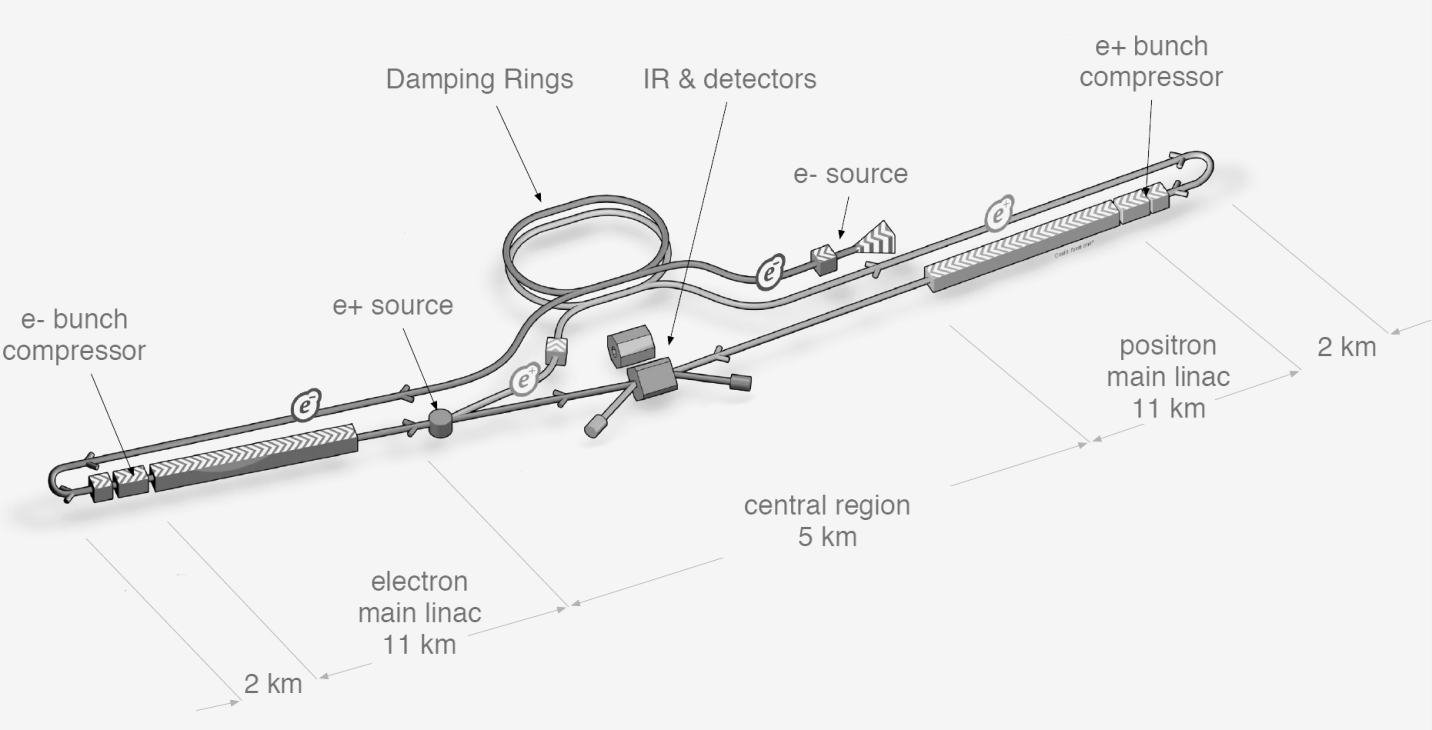Research
ILC, the International Linear Collider is the next large basic science infrastructure to address frontier knowledge on the fundamental forces of Nature and on the origin of the Universe 1. It is a particle accelerator complex including two 11 km long linear accelerators (linac) in an head-on configuration producing electron-positron collisions at 500 GeV (a million time the electron mass) and 1 TeV in a second phase 2,3. Although being much less greedy in term of electrical power than other linear or circular colliders, the center will consume ~ 180 MW at peak power, the equivalent of the consumption of a city of 200,000-300,000 residents.
The Green-ILC project, already presented in several conferences 4, is precisely addressing the large scale research infrastructure power consumption issues and the use of renewable energies. Beyond ILC, it is paving the way to any future high-energy collider (circular or linear) that will face the same issues, but on an even larger scale.
Green-ILC is a two-fold project. It is aiming first at powering the International Linear Collider in the most efficient and sustainable way and, second, at delivering to the society any advances in energy R&D thus obtained.
This short note addresses a large audience ranging from accelerator physicists and engineers, high-energy physicists, energy scientists and experts, industry researchers and leaders. It will essentially list the main topics to be covered by the Green-ILC project. It should help setting up dedicated workshop agendas and sharing the workload of international working groups.
Energy saving, energy recycling, sustainable energies, energy storage and distribution are the 5 main topics addressed here. Working group Charter will be setup and a proposed implementation time line in the ILC lifetime will be then discussed. If you are already convinced that getting into energy R&D is a necessity you can skip the next chapter.
